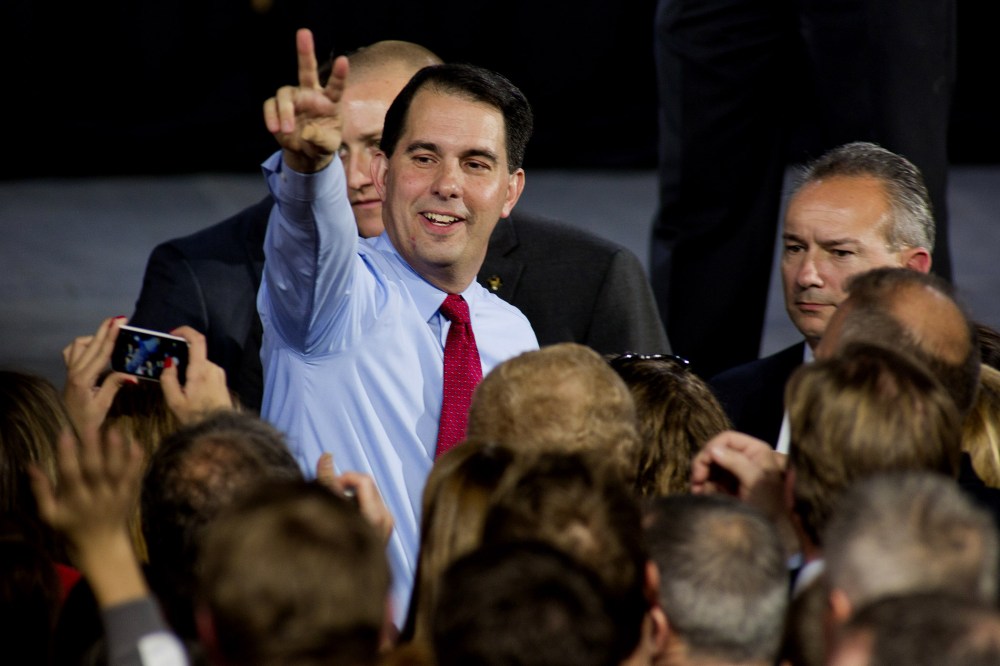Wisconsin Gov. Scott Walker ended Tuesday night a winner once again, after fighting off Democratic challenger Mary Burke. Walker took home 52.3% of the vote to Burke’s 46.6%.
What looked for much of 2014 like a neck-and-neck race turned out to be a decisive victory for 47-year-old Walker, on a night filled with Republican triumph. Republican party leaders like RNC chair Reince Priebus called Walker’s race a must-win, and the incumbent did not disappoint.
In all three of his races for governor, Walker has sold himself as a conservative that can win in a blue state. Favorable redistricting has dramatically reduced the influence of Democrats in Wisconsin, but Walker still spent six months of the campaign essentially tied with Burke.

What happened in the end? A well-practiced state party machine (thanks to three elections in four years), millions of dollars spent by conservative groups on issue advocacy, a Republican voter base energized by a national wave of anti-Obama, anti-government anger, and recent court decisions that made it easier for dark money groups to raise funds without disclosing their donors were a winning combination.
Could it work in 2016? Speculation over Walker’s possible presidential ambitions has dogged him since he stripped public sector unions of collective bargaining rights in 2011. The fact that Walker can say he fought unions and teachers and low-wage workers and won again could be a strong pitch to conservatives.
Tuesday’s victory gives Walker a response to those who questioned whether his tough reelection race would hurt his political stock and could offer insight into how he might sell himself to 2016 primary voters.
The fact that this year’s governor’s race focused so heavily on the economy, rather than social issues, let Walker play up fiscal issues and economic populism to voters still struggling to recover from the 2008 economic crash. Burke’s main selling point to voters was her experience in business and as a former Commerce Secretary, but her background made it easier for Walker to stay on message about recent improvements in the state’s economy.
Without the need to appeal to voters on social issues that might have galvanized voters that often stay home during midterms like younger voters and non-white voters, Walker managed to appear much more moderate than he actually is.












